Managing taxes can feel overwhelming for small business owners, but with the right strategies, you can save a lot of money. This article breaks down essential tax-saving tips that every small business should know. From understanding deductions to avoiding common mistakes, we’ll guide you through ways to maximize your savings and keep more of your hard-earned money.
Key Takeaways
- Start planning your taxes early to avoid costly mistakes later.
- Maximize deductions by turning personal expenses into business costs.
- Choose the right business structure to benefit from tax savings.
- Invest smartly in assets that can reduce your tax bill.
- Keep organized records to support your deductions and avoid IRS issues.
Understanding the Importance of Tax Planning
Tax planning isn’t just a boring chore; it’s your secret weapon against the IRS! Procrastination can cost you big time, so let’s dive into why planning ahead is crucial for your small business.
Why Procrastination Costs You Big Time
When you wait until the last minute to think about taxes, you’re setting yourself up for a world of hurt. Imagine this: you’re scrambling to gather receipts, and suddenly you realize you’ve missed out on valuable deductions. Ouch! Here’s a quick list of what procrastination can lead to:
- Missed deductions
- Late fees and penalties
- Stress and anxiety (not fun!)
The Difference Between Tax Evasion and Tax Avoidance
Let’s clear the air: tax evasion is illegal, while tax avoidance is your right! Think of it this way: tax evasion is like trying to sneak into a concert without a ticket, while tax avoidance is using your ticket to get the best seat in the house. You want to maximize your savings legally, and that’s where smart planning comes in.
How Early Planning Can Save You Thousands
Getting ahead of your tax game can save you a ton of cash. Here’s how:
- Evaluate tax credits: Don’t leave money on the table!
- Review your tax status: Know where you stand.
- Consider retirement options: They can offer immediate tax benefits.
- Defer or accelerate income: Timing can make a difference.
Remember, the government isn’t going to knock on your door to remind you about these strategies. It’s up to you to take charge and implement them!
By planning early, you can turn potential tax liabilities into savings. So, roll up your sleeves and get to work!
Maximizing Deductions Without Overspending
When it comes to running a small business, every penny counts. You want to keep as much of your hard-earned cash as possible, right? Well, maximizing your deductions is one of the best ways to do just that! Let’s dive into some strategies that can help you save without breaking the bank.
Turning Everyday Expenses Into Business Deductions
Did you know that some of your daily expenses could be tax-deductible? Here are a few common ones:
- Home Office: If you work from home, you can deduct a portion of your rent or mortgage, utilities, and even internet costs. Just make sure you have a dedicated workspace!
- Travel Expenses: If you travel for business, keep those receipts! Flights, hotels, and meals can often be deducted, but remember to document the business purpose.
- Meals: You can deduct 50% of meal expenses when dining with clients or during business trips. Just keep a record of who you dined with and why.
The Home Office Deduction: More Than Just a Spare Room
The home office deduction is a goldmine for many small business owners. If you use part of your home exclusively for business, you can deduct a portion of your home expenses. This includes:
- Rent or mortgage interest
- Utilities
- Home insurance
Just remember, the space must be used regularly and exclusively for business. So, no using that office for family game night!
Travel and Meals: What Qualifies and What Doesn't
When it comes to travel and meals, the IRS has specific rules. Here’s a quick guide:
- Travel: You can deduct travel expenses if the trip is primarily for business. Keep a log of your itinerary and expenses.
- Meals: Only 50% of meal costs are deductible, and they must be business-related. So, no deducting that pizza you ordered while binge-watching your favorite show!
Tip: Always keep detailed records of your expenses. Good documentation can save you a lot of headaches come tax time.
By understanding these deductions, you can turn your everyday spending into tax savings. So, keep track of those expenses and watch your savings grow!
Leveraging Business Structure for Tax Benefits
When it comes to taxes, your business structure can be a game changer. Choosing the right structure can save you a ton of cash! Let’s break it down:
Choosing Between LLC, S-Corp, and C-Corp
- LLC (Limited Liability Company): This is like the Swiss Army knife of business structures. It offers flexibility and protects your personal assets. Plus, you can choose how you want to be taxed—either as a sole proprietor or as an S-Corp.
- S-Corp: This is great if you want to save on self-employment taxes. You can pay yourself a reasonable salary and take the rest as distributions, which aren’t subject to self-employment tax.
- C-Corp: This is often for larger businesses. It has double taxation (corporate and personal), but it can be beneficial for reinvesting profits back into the business.
How Your Business Structure Affects Your Tax Bill
Your business structure directly impacts your tax obligations. For instance, if you’re an LLC, you might be taxed as a sole proprietor, which means all your profits are subject to self-employment tax. But if you elect to be taxed as an S-Corp, you can potentially save thousands by avoiding that hefty tax.
Making the Switch: When and How to Change Your Business Entity
- When to switch: If your business is growing and your income is increasing, it might be time to consider changing your structure. For example, if you’re making over $50,000, an S-Corp could be more beneficial.
- How to switch: Consult with a tax professional to understand the implications. You’ll need to file paperwork with your state and possibly the IRS to make the change.
Remember, the right business structure can be your best friend when it comes to taxes. Don’t leave money on the table!
By understanding these structures, you can make informed decisions that keep more of your hard-earned cash in your pocket. So, whether you’re just starting out or looking to grow, take a moment to evaluate your business structure—it could lead to significant tax savings!
Smart Investments That Reduce Your Tax Liability

When it comes to taxes, you want to play smart, not hard. Investing wisely can help you keep more of your hard-earned cash. Let’s dive into some strategies that can help you reduce your tax liability while boosting your business.
The Power of Real Estate Investments
Real estate is like a tax superhero. Why? Because you can deduct depreciation on your rental properties. This means you can report tax losses even if you’re cash flow positive. Here’s a quick breakdown:
| Investment Type | Tax Benefit | Notes |
|---|---|---|
| Rental Properties | Depreciation Deduction | Can offset income |
| Commercial Real Estate | Potential for significant deductions | Great for long-term investment |
| REITs | Dividends taxed at lower rates | Good for passive income |
Retirement Plans That Offer Tax Advantages
Don’t forget about your future! Contributing to retirement accounts not only secures your golden years but also offers immediate tax savings. Here’s how:
- Traditional IRA: Contributions may be tax-deductible, reducing your taxable income.
- Roth IRA: No immediate tax deduction, but withdrawals in retirement are tax-free.
- 401(k): Pre-tax contributions lower your taxable income now, but withdrawals are taxed later.
Utilizing Depreciation to Your Benefit
Depreciation is a non-cash expense that can significantly lower your taxable income. Here’s how to make it work for you:
- Identify Assets: List all business assets that can be depreciated.
- Calculate Depreciation: Use the straight-line or accelerated method to determine your deduction.
- Claim It: Make sure to include it in your tax filings to reduce your taxable income.
Remember, the goal is to turn your spending into tax-deductible expenses. If you’re spending money on your business, make sure it counts!
By making smart investments, you can not only grow your business but also keep Uncle Sam at bay. So, get out there and start planning your investments wisely!
Avoiding Common Tax Mistakes
When it comes to taxes, small business owners often trip over the same rocks. Let’s dodge those pitfalls together!
The Pitfalls of Poor Record-Keeping
Good records are your best friends! Without them, you might as well be throwing money out the window. Here’s what you need to keep in mind:
- Track every expense: If you can’t prove it, you can’t claim it.
- Organize receipts: Use apps like Expensify to keep everything tidy.
- Review regularly: Don’t wait until tax season to sort through your papers.
Misunderstanding Tax Credits and Deductions
Many business owners confuse tax credits with deductions. Here’s the scoop:
- Tax credits reduce your tax bill dollar-for-dollar. Think of them as a gift from Uncle Sam!
- Deductions lower your taxable income. So, if you’re in the 22% tax bracket, a $100 deduction saves you $22.
- Know what you qualify for: Don’t leave money on the table!
How to Handle an IRS Audit Like a Pro
Getting audited can feel like a horror movie, but it doesn’t have to be scary. Here’s how to handle it:
- Stay calm: It’s not the end of the world.
- Gather your documents: Have everything organized and ready to go.
- Consult a tax professional: They can help you navigate the process.
Remember, the IRS isn’t out to get you. They just want to ensure everyone pays their fair share.
Avoiding these common tax mistakes can save you a ton of stress and money. So, keep your records straight, understand your credits and deductions, and don’t panic if the IRS comes knocking!
Advanced Strategies for Significant Savings
When it comes to saving on taxes, small business owners have some seriously clever tricks up their sleeves. Let’s dive into a few advanced strategies that can help you keep more of your hard-earned cash!
The Augusta Rule: Renting Your Home to Your Business
Ever heard of the Augusta Rule? It’s not just a fancy golf tournament! This rule allows you to rent your home to your business for up to 14 days a year without reporting the income. Imagine hosting a business retreat or a brainstorming session at your place and pocketing that cash tax-free! Just make sure to keep a record of the rental agreement and the days rented.
Hiring Family Members: A Win-Win
Why not bring the family into the business? Hiring your kids or spouse can be a great way to shift income and reduce your tax burden. Here’s how:
- Pay them a reasonable wage for actual work done.
- This can lower your overall taxable income.
- Plus, your family gets to learn valuable skills!
Charitable Contributions: Giving Back While Saving
Donating to charity not only feels good but can also provide tax deductions. Here’s how to maximize this strategy:
- Donate cash or property: Both can be deducted, but property often has a higher value.
- Keep records: Always document your donations to avoid any IRS headaches.
- Consider a donor-advised fund: This allows you to make a charitable contribution and receive a tax deduction in the year you contribute, even if you distribute the funds later.
Remember, the government loves when you give back, so take advantage of these deductions!
By implementing these strategies, you can significantly reduce your tax liability while doing good for your community and your family. So, roll up your sleeves and start planning!
Tools and Resources for Effective Tax Management

When it comes to managing your taxes, having the right tools can make all the difference. Staying organized is key! Here are some must-have resources to help you navigate the tax maze:
Top Software for Tracking Expenses
- Xero: This user-friendly platform is perfect for small business owners. It tracks your expenses in real-time, so you won’t be scrambling at tax time. Plus, it integrates with other apps to keep everything in sync.
- Expensify: Say goodbye to crumpled receipts! This app lets you scan and categorize your receipts, making it easy to keep track of your expenses.
- FileCenter: For those who prefer a more traditional approach, FileCenter helps you organize your physical documents. It even converts them into a searchable digital format!
When to Consult a Tax Professional
- If you’re feeling overwhelmed, don’t hesitate to reach out to a tax pro. They can help you understand the tax strategies that work best for your business and ensure you’re not leaving money on the table.
- Consider consulting a professional if you’re making significant changes to your business structure or if you’re unsure about deductions.
Staying Updated on Tax Law Changes
- Tax laws are like that one friend who can’t stop changing their mind. Stay informed by subscribing to tax newsletters or attending webinars. This way, you won’t be caught off guard by new regulations.
- Use pre-accounting software to keep your records up-to-date with the latest tax laws. It’s like having a personal assistant for your finances!
Remember, the government isn’t going to remind you about deductions. It’s your job to stay informed and proactive!
With these tools and resources, you’ll be well on your way to maximizing your tax savings and keeping your business thriving!
Wrapping It Up: Your Tax-Saving Adventure Awaits!
So there you have it, folks! Navigating the tax maze as a small business owner might feel like trying to find your way out of a cornfield blindfolded, but it doesn’t have to be that way. By using the strategies we’ve discussed, you can keep more of your hard-earned cash in your pocket instead of handing it over to Uncle Sam. Remember, the government isn’t going to come knocking on your door with a list of deductions you missed; it’s up to you to be proactive. So, roll up your sleeves, get organized, and don’t hesitate to reach out for help if you need it. With a little planning and some savvy moves, you’ll be well on your way to maximizing your tax savings and boosting your bottom line. Happy saving!
Frequently Asked Questions
What are tax deductions and how can they help my small business?
Tax deductions lower your taxable income, which means you pay less in taxes. They include expenses like office supplies, travel, and meals related to your business.
How can I maximize my tax deductions without overspending?
Instead of buying unnecessary items just for deductions, focus on expenses you already have. Find ways to categorize them as business expenses to save money on taxes.
What is the home office deduction and how do I qualify for it?
The home office deduction allows you to deduct a portion of your home expenses if you use part of your home exclusively for business. Keep good records to support your claim.
Why is it important to keep good records for tax purposes?
Good record-keeping helps you track your expenses and proves your deductions if the IRS asks. It can save you money by ensuring you don’t miss out on valid deductions.
When should I consult a tax professional?
If you’re unsure about tax laws or need help with complex deductions, it’s a good idea to consult a tax professional. They can help you save money and avoid mistakes.
What common mistakes do small business owners make with taxes?
Some common mistakes include not taking all available deductions, poor record-keeping, and misunderstanding tax credits. These can lead to paying more taxes than necessary.







